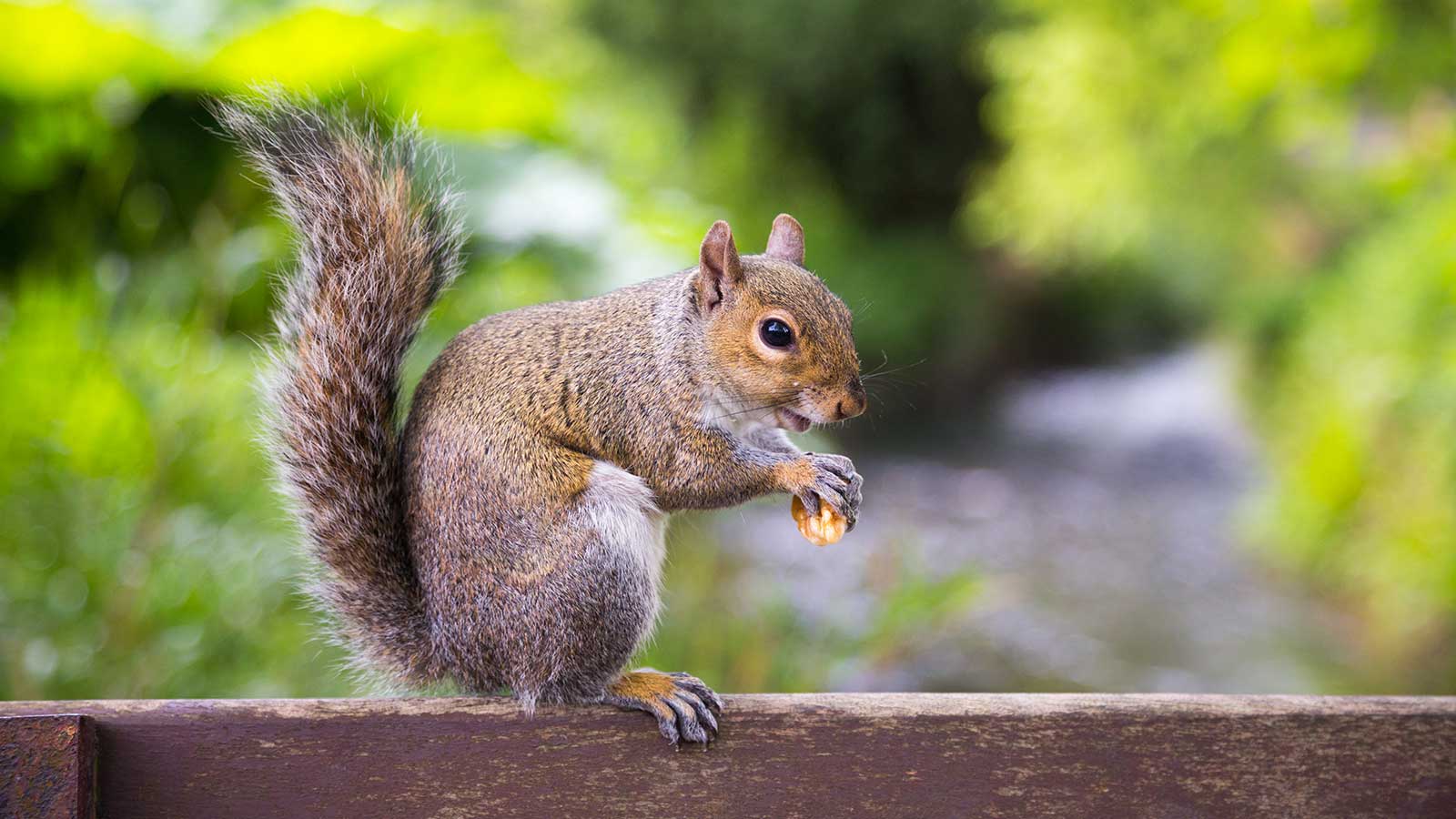
Squirrels may look sweet, but they can be a nuisance in backyards. These fluffy critters are well-known for digging up flowerbeds, chewing on trees and shrubs, and stealing food from feathered friends.
There are a few ways to get rid of squirrels, including using decoy predators and natural sprays. But did you know that some plants can help to repel these critters, too?
From spring blooms to edible delights, you'll find seven expert recommendations below.
7 planting picks to help keep squirrels away
Whether growing in borders or a container garden, add these options to your plot to ward off these furry creatures.
1. Pelargoniums
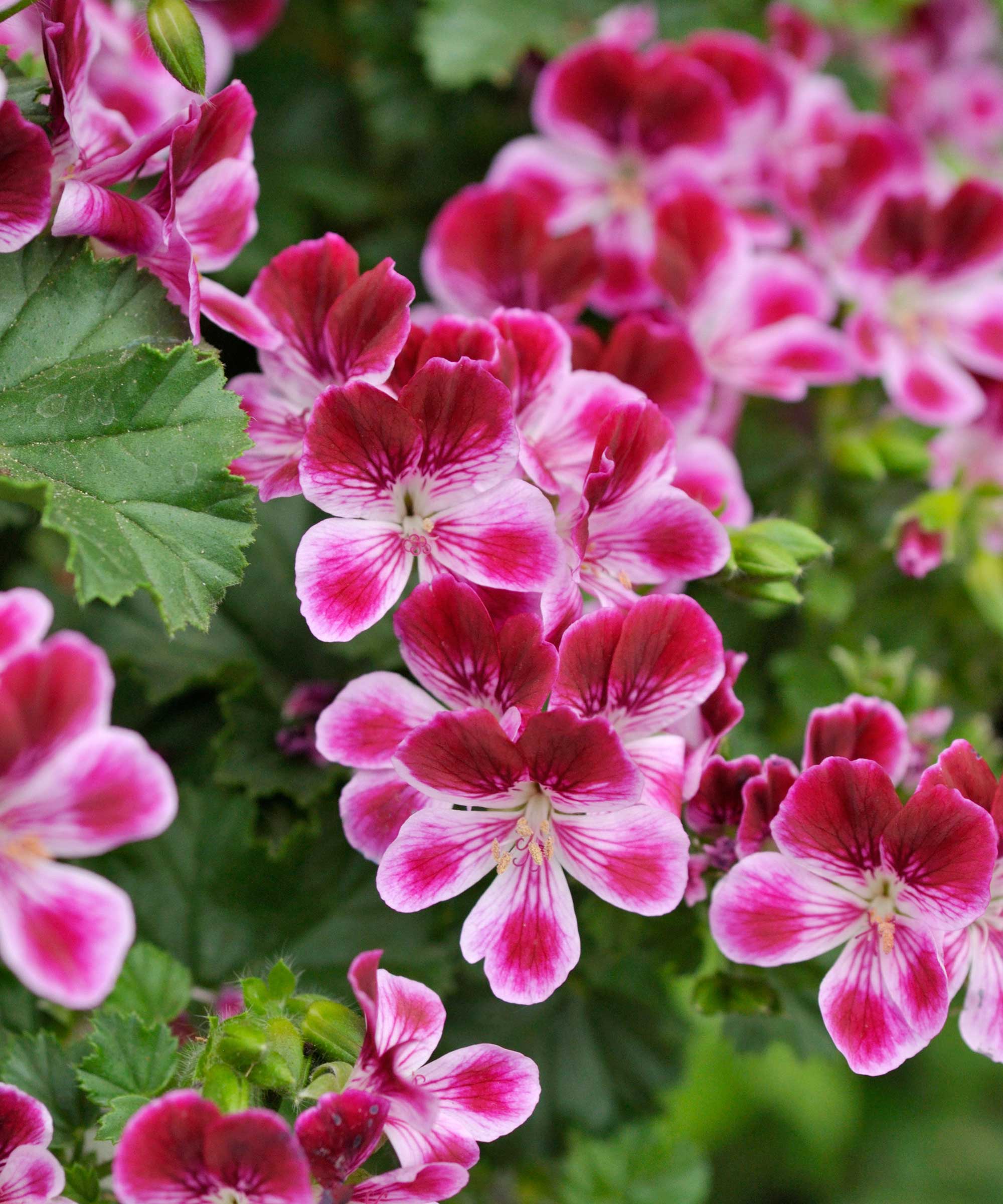
Julia Omelchenko, resident botany expert at Plantum, points out how some pelargonium species have a pronounced aroma which squirrels dislike. She suggests Pelargonium tomentosum, commonly known as the peppermint-scented geranium, or Pelargonium crispum, also called the crisped-leaf pelargonium, which has a citrus odor.
With their pretty blooms, often in hot hues, they make eye-catching container plants for a summer patio. Plus, many are well-suited plants for making a balcony smell nice. It's important to note that pelargoniums are tender plants, though, so need to be overwintered indoors on a sunny windowsill in cooler climes.
'Provide pelargoniums with bright sun to encourage profuse blooming,' Julia recommends. 'The soil should be nutrient-rich, loose, and well-draining. Water the plants regularly and abundantly, but let the soil dry between waterings to prevent sogginess. No manual watering is necessary when it rains.'
2. Daffodils
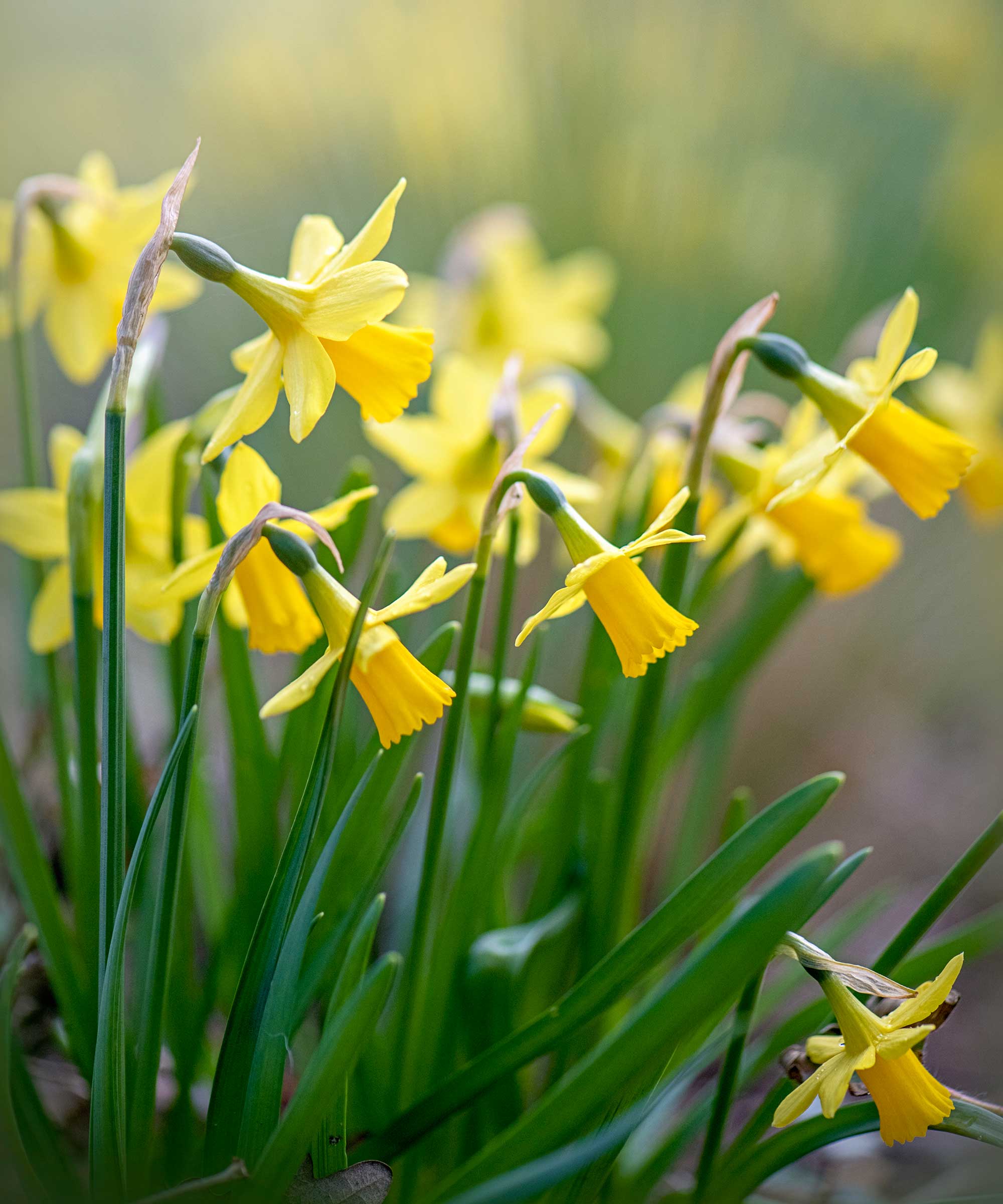
Daffodils are favorite spring bulbs of many, popping up year after year with little maintenance needed. And, not only do these perennials look gorgeous with their cheery yellow blooms, but Alex Hale David of Pest Control Weekly highlights how they help repel squirrels. This is because they contain toxic compounds that make them unpalatable, he explains.
'Plant daffodil bulbs in well-drained soil with full sun to partial shade, ensuring they are planted at a depth of two to three times their height with the pointed end facing upwards,' he instructs. 'After flowering, allow the foliage to die back naturally before removing it to allow the bulbs to store energy for the next growing season.'
These plants can help to repel mice, too. You can shop for a wide range of daffodil bulbs from Burpee, depending on the season.
Top tip: Daffodils (like all spring bulbs) are poisonous to pets. If you have four-legged friends, plant them with caution, or avoid them altogether.
3. Hyacinths
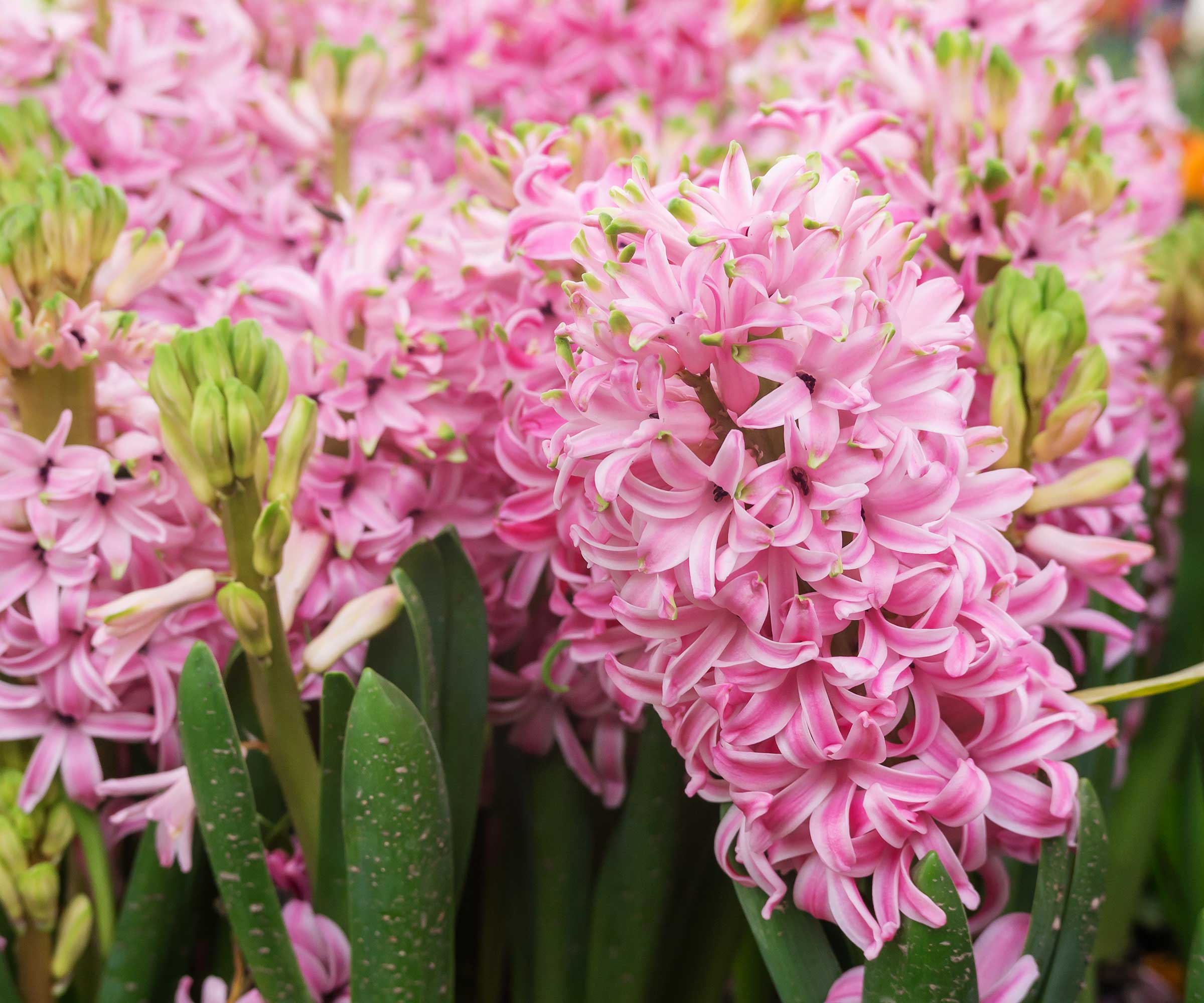
The sweet scent of hyacinths is well-loved by many gardeners, however this aroma is disagreeable to squirrels, as Alex highlights. This makes them useful repellents during the spring months.
'When planting hyacinth bulbs, choose a location with well-drained soil and full sun to partial shade,' Alex recommends. He also suggests deadheading the spent flowers to encourage bulb growth. However, like daffodils, leave the foliage to die back naturally recommends Jana McDaniel, founder of First Saturday Lime, creators of an eco-friendly insect repellent. This will nourish the bulbs for the next season, she explains.
Types of hyacinths, including the vibrant pink 'Jan Bos', are seasonally available from Burpee.
4. Crown imperials
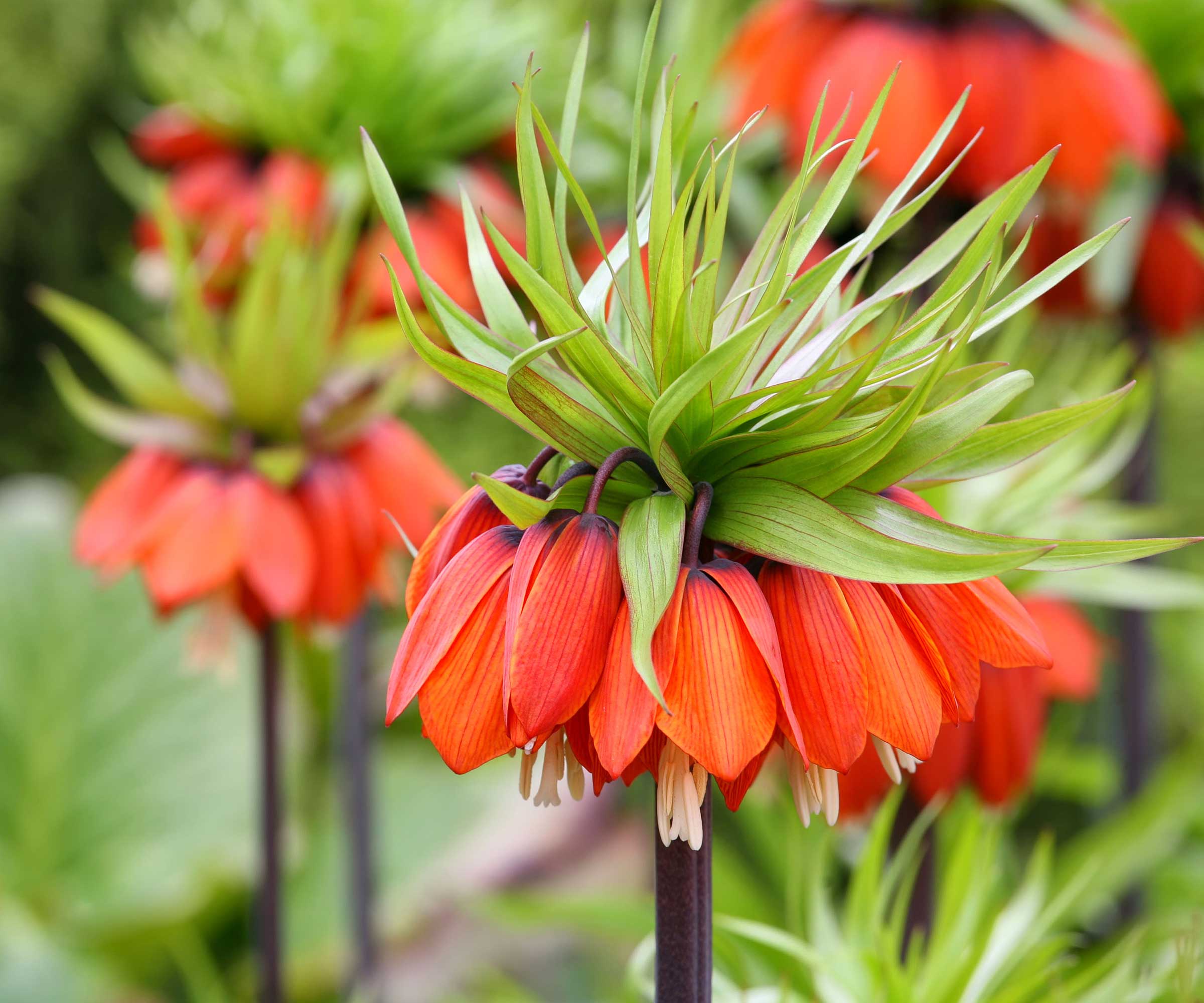
Alex says, 'Crown imperials emit a strong odor that squirrels find repulsive, making them an effective deterrent for keeping squirrels away from your garden beds.'
Julia agrees they are repellent to the critters, and adds that their fragrance also deters mice and moles. When planting, she suggests aiming for a spot exposed to direct sun for at least six hours a day.
'The crown imperial needs a growing medium with good draining properties, so you can add some sand and compost to the soil,' she adds. 'While the crown imperial can endure droughts, watering it manually during dry spells will promote thriving growth. Use enough water to saturate the soil without waterlogging it.'
Julia adds, 'While the crown imperial adds allure to the garden, remember that it’s toxic to pets and humans.'
5. Onions and garlic
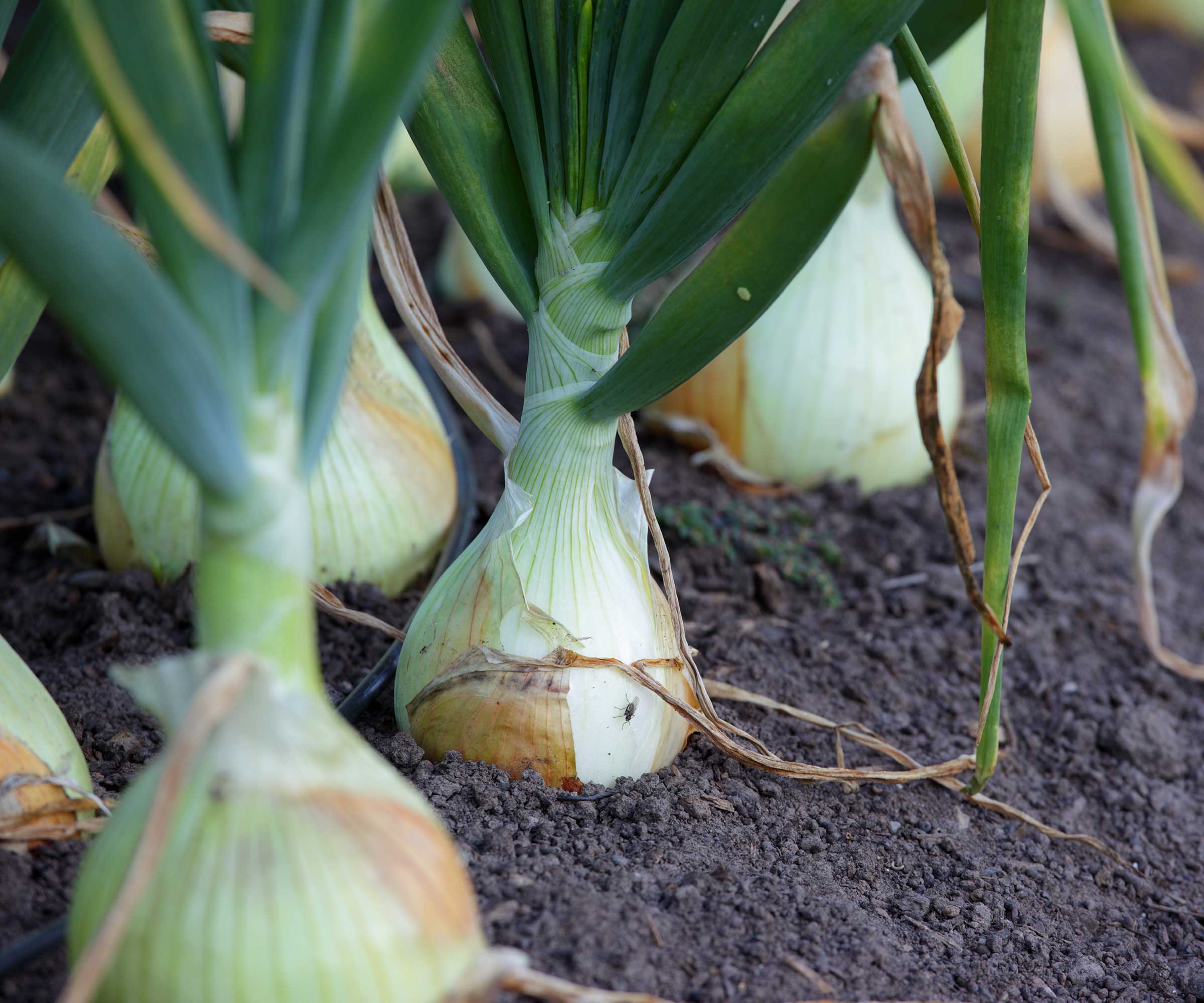
If you're growing a vegetable garden in your backyard, consider planting onions and garlic – both in the allium family – to help keep squirrels away. Julia says that the creatures dislike their strong aroma, and so rarely visit gardens where these plants are growing.
'Alliums thrive in full sun or partial shade under a tree with a thin crown,' she says. 'Make sure to choose a place protected from winds.' She also recommends ensuring the soil is well-drained to prevent bulb rot due to waterlogging. 'Once established, allium species become drought-tolerant,' she adds.
For an easy-grow crop with pinkish skins, try 'Blush Hybrid' onions from Burpee. 'Silver Rose' garlic, also from Burpee, is a good pick if you're looking for fast results.
Top tip: Garlic is also considered a fly-repellent plant, as well as a snake-repellent plant.
6. Ornamental alliums
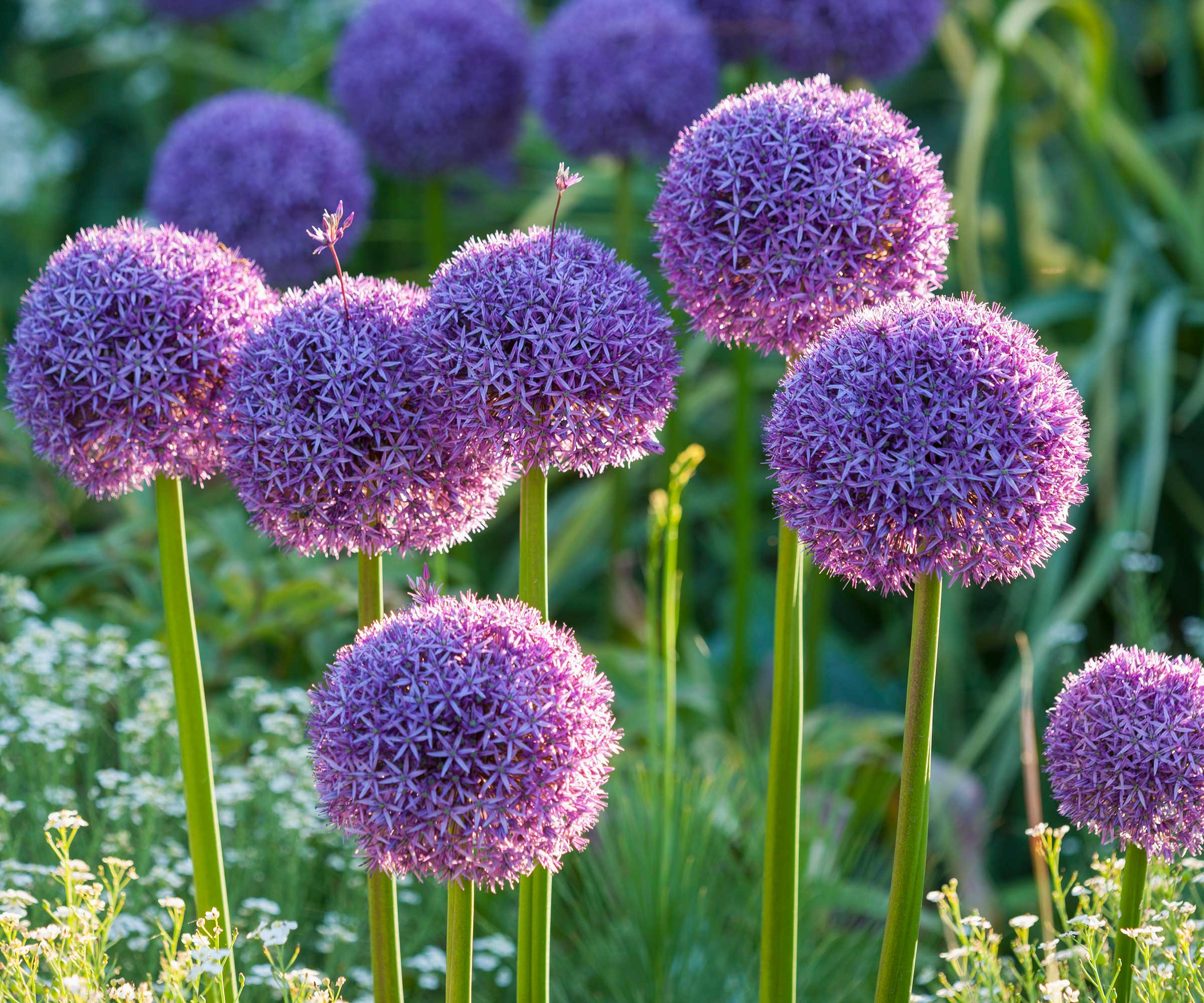
It's not just the edible varieties of alliums that are squirrel-repellent plants – Julia points out how ornamental alliums can be effective, too, while adding beauty to your flowerbeds.
Blooming in late spring onwards with globe-shaped purple (or sometimes pink or white) flowerheads, these plants also attract butterflies and bees to your garden. They look just as gorgeous amongst informal prairie planting schemes as they do in contemporary containers. They also make excellent cutting garden flowers.
There are many types of alliums to grow, including 'Globemaster' which has giant purple blooms. Or, for something more delicate, try 'Pink Moon' alliums from Burpee. These have pale pink flowerheads, each one around three inches in diameter.
Once they've finished flowering, allium seedheads are striking, too, whether left in the border or cut and displayed in a vase.
7. Snowdrops
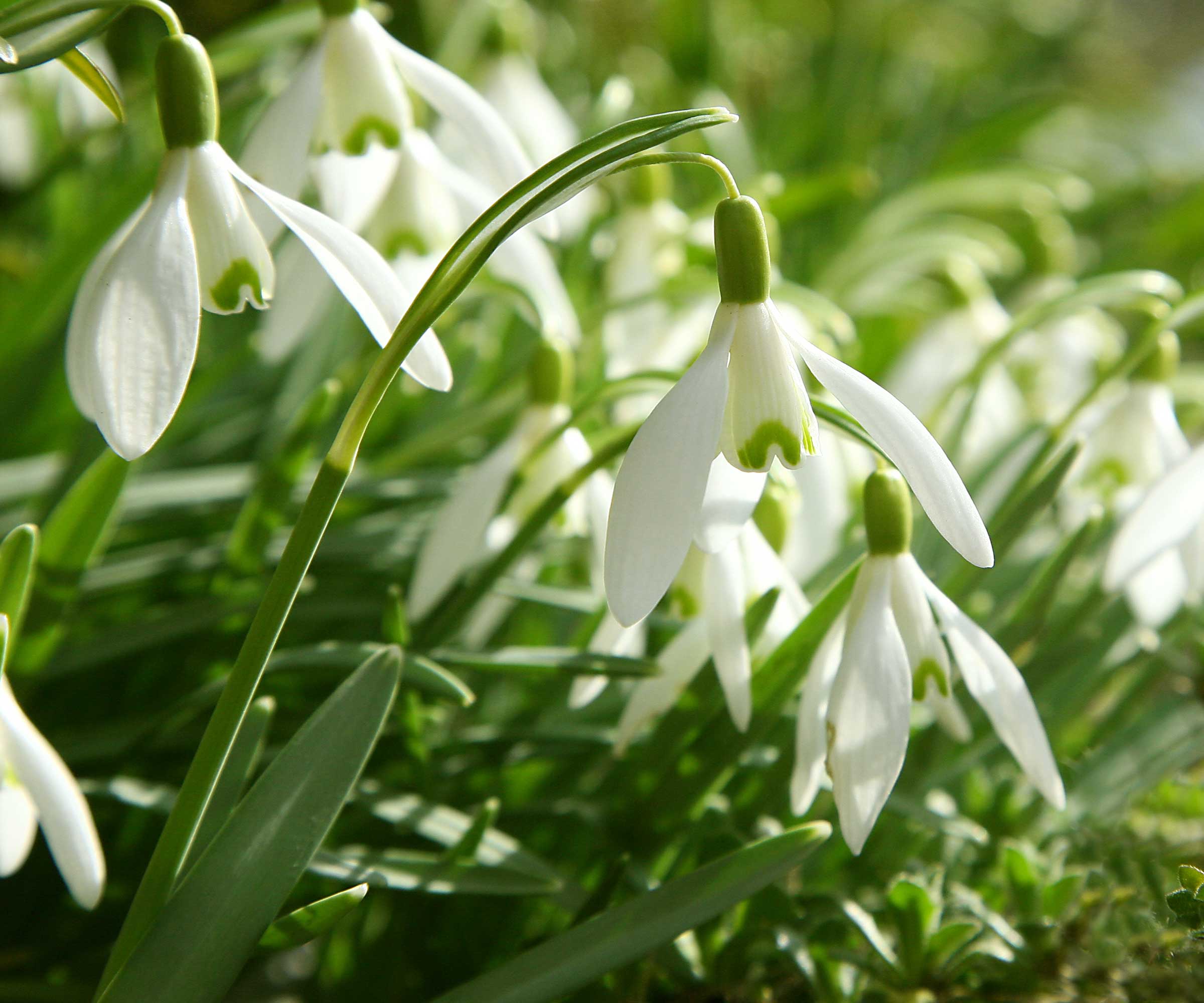
The elegant white blooms of snowdrops brighten the late-winter garden, and can help to pest-proof it, too. Alex says, 'Snowdrops produce a toxin called galantamine that makes them unappealing to squirrels, helping to protect your garden from their foraging.'
He recommends planting them in well-drained soil with partial shade to full sun. Keep the soil consistently moist, he says – 'especially during the bulbs' active growth period in spring.
'Divide clumps of snowdrops every few years to prevent overcrowding and improve flowering,' he adds.
Top tip: Snowdrops are best planted 'in the green', which is when they have their leaves. These are often available from garden centers in early spring.
FAQs
How do I squirrel-proof my yard?
When it comes to pest control, combining methods can be more effective than relying on just one. These could include using squirrel-proof bird feeders, or using physical barriers, in addition to strategic planting, says Jana.
For instance, Julia suggests covering garden plants with netting for additional protection. For keeping young trees safe from their nibbling, consider using tree guards, available from Amazon. Scattering coffee grounds is also said to help keep squirrels out of potted plants.
Bear in mind that it's essential to maintain a balanced ecosystem in your garden, though, as Jana points out. 'Squirrels play an important role in the natural cycle, and complete eradication may not be desirable or practical.'
Can planting herbs help repel squirrels?
Whether you're gardening on a small patio or courtyard or have a large yard to play with, planting herbs can elevate your culinary creations and add extra sensory appeal to the space. What's more, lots of varieties have pretty flowers, and, as it happens, many are considered squirrel-repellent plants.
Mint is one example and is so easy to grow – and delicious in summer cocktails. In fact, it grows so readily that it can often get out of control, so it's best to keep it in a pot. Plus, it's also said to deter mosquitoes.
Try planting aromatic rosemary and basil in your herb garden, too, to help keep furry critters at bay. And don't forget about chives, which are part of the allium family, and have clusters of purple blooms.
Top tip: Many herbs are great plants for repelling other pests, too, such as basil for aphids and dill for spider mites.
Whether tackling insect interlopers such as slugs or aphids or larger animals like rabbits, chipmunks, or raccoons, pest intruders can cause all sorts of issues in your backyard. Putting precautions in place is a good idea to protect your precious plants, and in some cases, even your outdoor structures.







